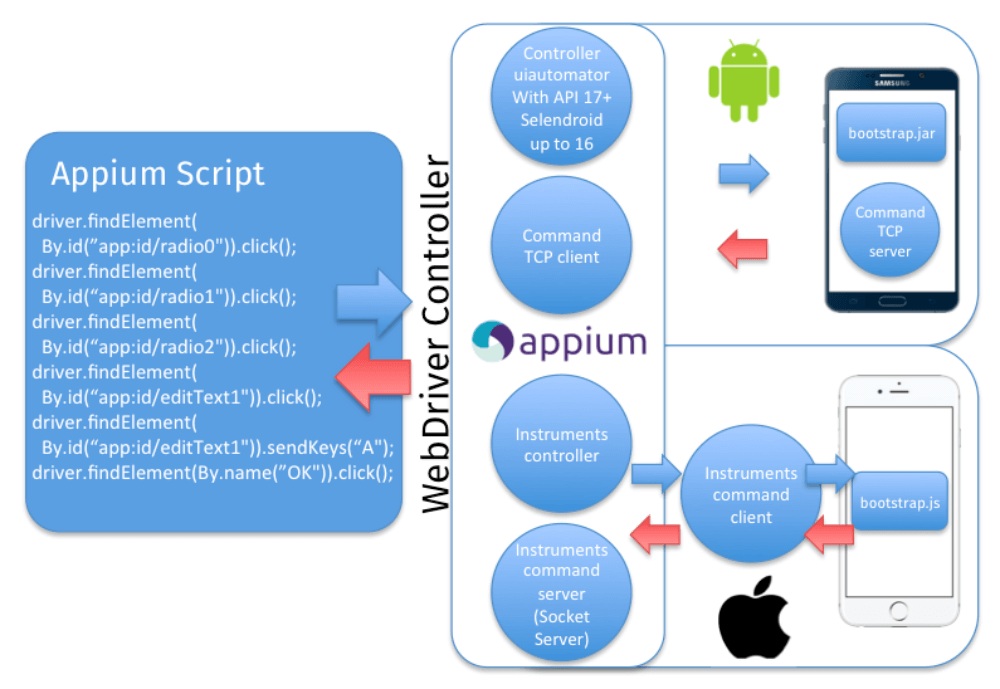Mobile Test Automation Using Appium
With growing demand in the market, enterprise mobility has undergone a paradigm shift. Speed, quality and user-friendliness are the need of the hour for modern enterprises. Mobile apps have become a major source of revenue boosters for enterprises today.
It is a well-known fact today that the numbers of platforms and device types are more varied now than ever before. Customers continue to demand the latest devices, features and functionality, as well as increased mobility and accessibility. With the proliferation of mobile and portable device platforms and the Internet of Things, the workload of developers, and especially testers, has greatly increased. As traditional testing practices of manual app testing prove unable to keep up with the demand, businesses of all types are experiencing significant product delivery delays and, in some cases, costly product defects. Naturally, there is a growing demand for more efficient and cost-effective testing across all platforms.
Appium: Addressing the complexities of mobile app testing
To address the demands of complex testing needs, an effective mobile app testing platform is needed which is secure, supports functional and automated testing without losing an eye on the speed and quality. So, in this era where consumers have adopted smartphones, use multi-platforms to access mobile devices, do you think your app is delivering the best experience to your users? If not, then Appium is the solution. Appium is an open source, cross-platform mobile automation tool to automate the test for native, hybrid and mobile web apps.
Appium being one of the best solutions for automation comes with support for Android and iOS real devices. In fact, it also comes with support for simulators and emulators. At its core, it an HTTP server written in node.js. It has similar working as Selenium which actually perceives HTTP requests from selenium client libraries and handles those requests in different ways depending upon the platforms.
Being the best and widely used option available today in the market, it is widely adopted by modern enterprises to create a comprehensive mobile automation framework. With a growing user base and a stronger community, it is easier to adopt and implement which is why enterprises are adopting it on a very large scale. The best thing about Appium is that it lets you write in any language supported by Selenium using WebDriver API.
While testing an Android app, Appium automates it with the help of UIAutomator library, a part of Android SDK. This actually makes the learning and implementation easier for Selenium users. Having the capabilities to test on both Android and iOS devices makes it the best cross-platform mobile app test automation tool. Automation scripts can be run on real Android and iOS devices using the WebDriver JSON Wire protocol.
Appium starts a test case on the device that spawns a server and listens for proxy commands. On iOS, Appium proxies command to a UIAutomation script running in instruments.

Appium: Why should you Choose?
- Opens the door to cross-platform mobile testing which means the same test would work on multiple platforms.
- Unlike other tools, it doesn’t require any third-party code to compile into your app to make it automation friendly.
- Enables a variety of frameworks and programming languages by wrapping the vendor-provided frameworks in the WebDriver API that specifies a client-server protocol.
- For a tester, the programming language and the whole experience would remain same irrespective of the automating platform as all complexities are under the hood of Appium server
- Possible to Execute multiple tests on multiple platforms without the need to manage them.
- Able to run test sequences with hundreds of test cases, across multiple platforms.
- Enables the view and share of device interactions with colleagues using in real-time built-in collaborative screen casting
- On-demand testing and leverage results directly
- It supports automation frameworks like JUnit and TestNG
Appium has some challenges when it comes to scaling up with continuous integration. pCloudy brings to you a solution for this where you can automate your app tests with zero learning. Sign up on pCloudy and automate your tests on Appium for faster and better delivery of apps.


